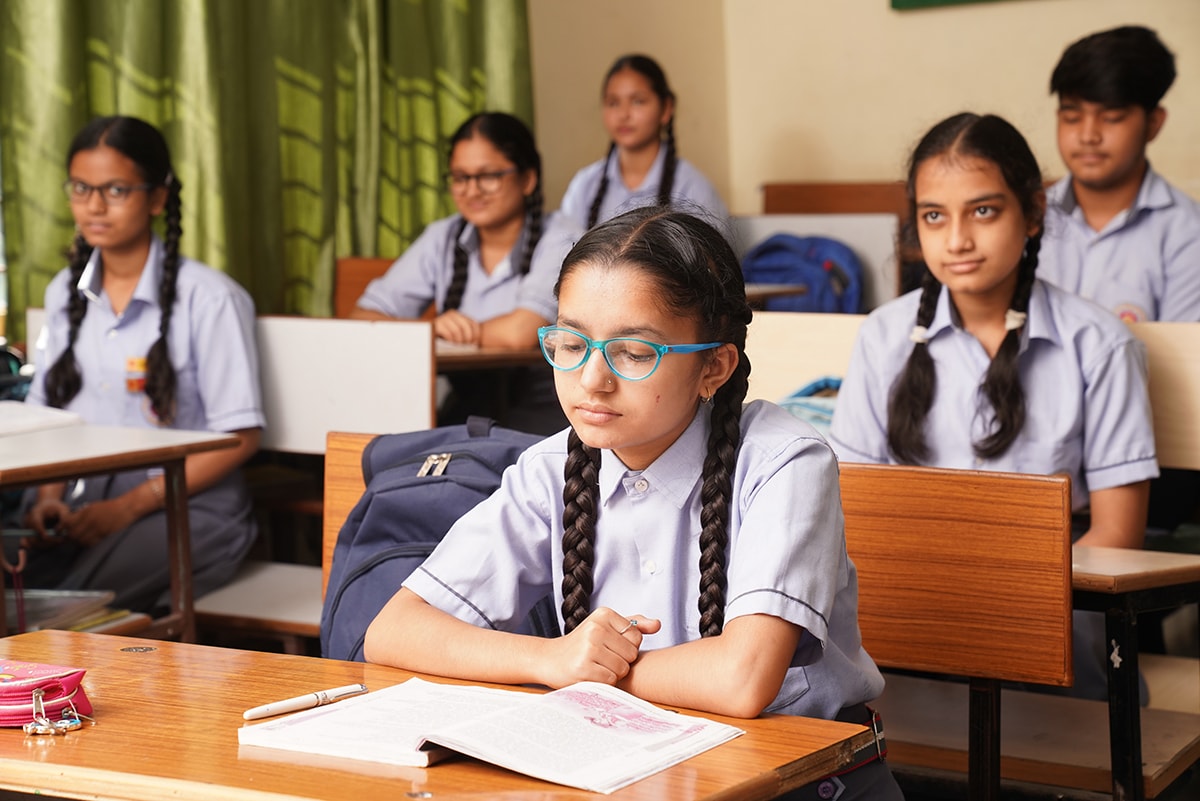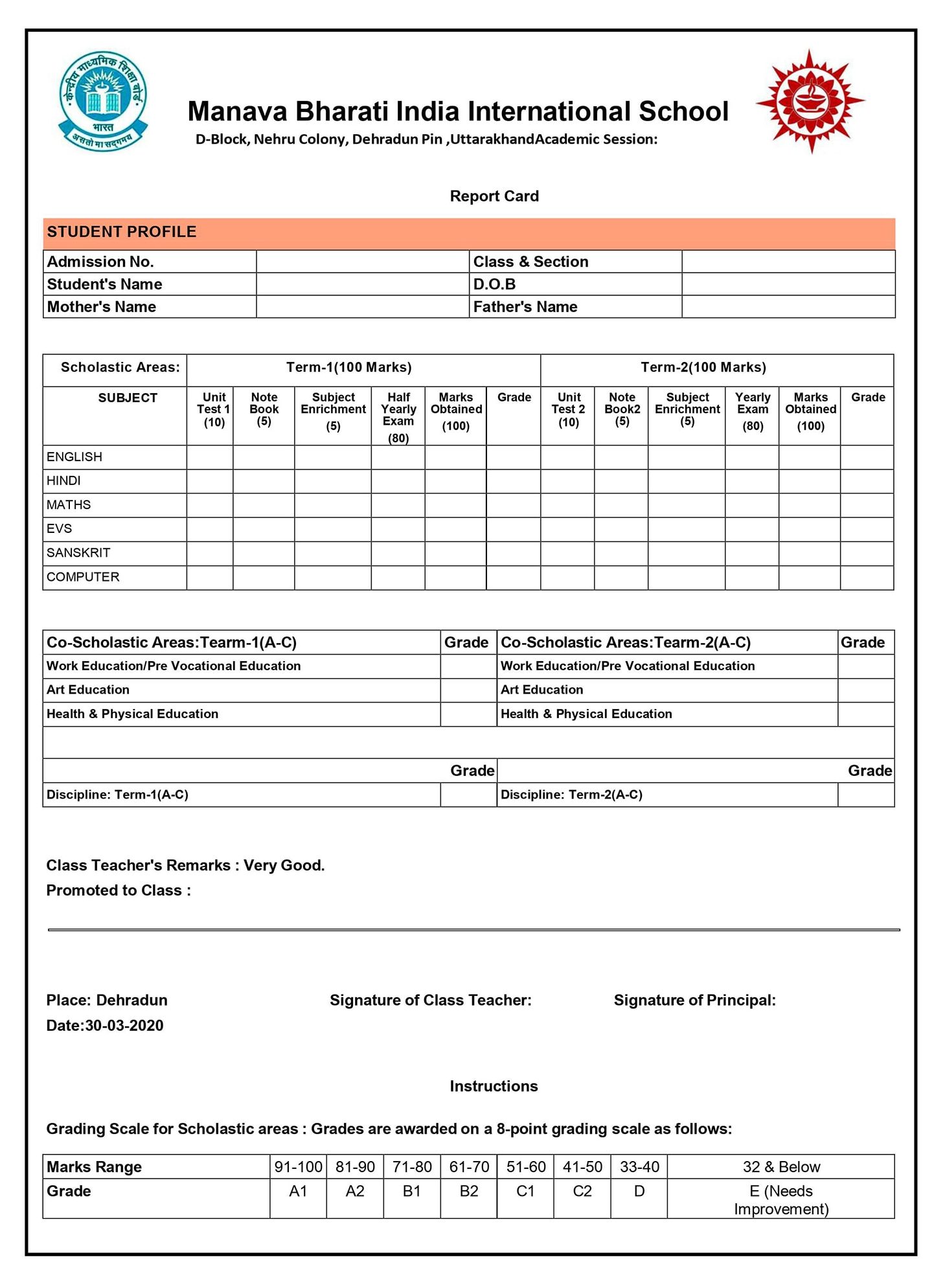Education aims at the all-round development of students.
CBSE has introduced a new way of evaluation from the session 2017-18. It includes two terms that include Unit Test, Note Book, Subject Enrichment and Half Yearly Exam for Term 1 and Annual Exam for Term 2.
The impact of Covid-19 has compelled CBSE to adopt a new exam pattern for the session 2021-2022. Accordingly the entire syllabus has been bifurcated into two terms.
Term 1: Consists of MCQ Based Question Paper in which 50% syllabus will be covered.
Term 2: Subjective based question paper in which remaining 50% syllabus will be covered.

In the year 2021-2022 CBSE has again changed the exam pattern due to the current situation of corona pandemic and our school has adopted the same pattern from the current year.
CBSE has now divided board the pattern according to the above mentioned terms in two parts.
The Central Board of Secondary Education (CBSE) has released the new assessment and evaluation practices for the academic session 2021-22. The evaluation practice is aimed to boost competency-based education (CBE). In the new assessment pattern, while the overall marks and duration of the examination remain unchanged, a greater number of competency-based questions to assess the application of concepts in real-life situations will be included.
“At a time when home-schooling and online education has become relevant, the traditional method of assessment will become redundant, which if continued further can be misinterpreted by both teachers as well as students.”
Training and Skill Development, CBSE. For classes IX and X, the percentage of competency-based questions has been increased from 20 to 30, which will be in the form of multiple-choice questions, case-based questions, course-based integrated questions or any other types. Objective type questions will constitute 20% of the question paper, same as last academic and the remaining 50% will be short and long answer type questions.
For classes XI and XII, the competency-based questions will be 20%, same as last academic; the objective-type questions have been increased from 10% to 20% and the short answer and long answer type will now be reduced from 70% to 60%. This step of CBSE is in line with the National Education Policy (NEP) 2020 which advocates the need to move from rote to competency-based learning making it more focused on developing the creative and critical thinking capacities of students.
The Board will soon transform the focus from ‘assessment of learning to assessment for learning’. The assessment will shift from testing primarily rote memorization skills to one that tests students’ higher-order skills, such as analysis, critical thinking, and conceptual clarity,” The change, will happen gradually as the teachers and students get adjusted to the new pattern comfortably.
A total of 4 examinations are conducted session wise during the entire academic year i.e. 1st Unit Test, Half Yearly, 2nd Unit Test and Annual Examination. These four internal assessment exams are conducted on a regular basis according to the school norms.
Outcome of these internal assessment examinations will be displayed and the marks will be informed to both the parents and the students. Under performing students will be given extra attention and every effort is made at the departmental level to improve the performance of the student/s in the subsequent examinations.

